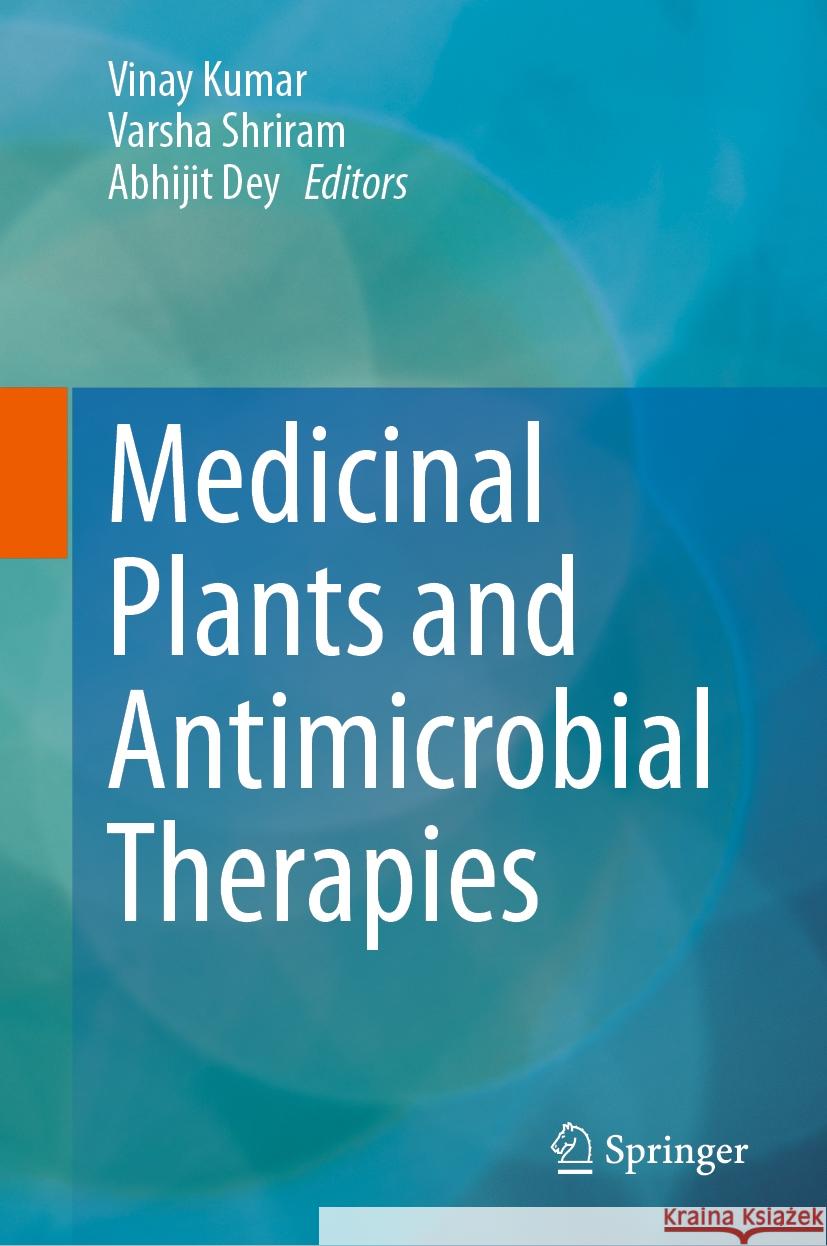Medicinal Plants and Antimicrobial Therapies » książka



Medicinal Plants and Antimicrobial Therapies
ISBN-13: 9789819972609 / Angielski
Medicinal Plants and Antimicrobial Therapies
ISBN-13: 9789819972609 / Angielski
(netto: 690,08 VAT: 5%)
Najniższa cena z 30 dni: 655,41
ok. 16-18 dni roboczych.
Darmowa dostawa!
Attached
Dr. Vinay Kumar
This book serves as an excellent comprehensive material covering the current understandings and updates on antimicrobial resistance (AMR) and the use of medicinal plant resources for tackling it. Chapters cover important aspects of AMR and strategies to address this threatening issue with medicinal plants and their resources. One health perspectives for addressing AMR have been presented for the readers. Antimicrobial medicinal plant therapeutic resources including crude extracts, active fractions, pure molecules and essential oils, besides using them as functionalizing agents for nano-antimicrobials have been covered. Further, plant endophytes as a source of antimicrobial compounds have been discussed. Chapters cover both the bactericidal as well as resistance-reversal (or potentiating/ combinatorial therapies) potencies of medicinal plant resources. The book also focuses on how medicinal plant resources effectively target major determinants of AMR. Use of metabolomics in understanding and targeting AMR mechanisms and identifying potent phyto-therapeutics has been discussed as well. The book is a valuable read for both experienced and younger researchers working in the field of AMR and related fields in biomedicine, pharmacy, and clinical research.
1997-2026 DolnySlask.com Agencja Internetowa
KrainaKsiazek.PL - Księgarnia Internetowa









